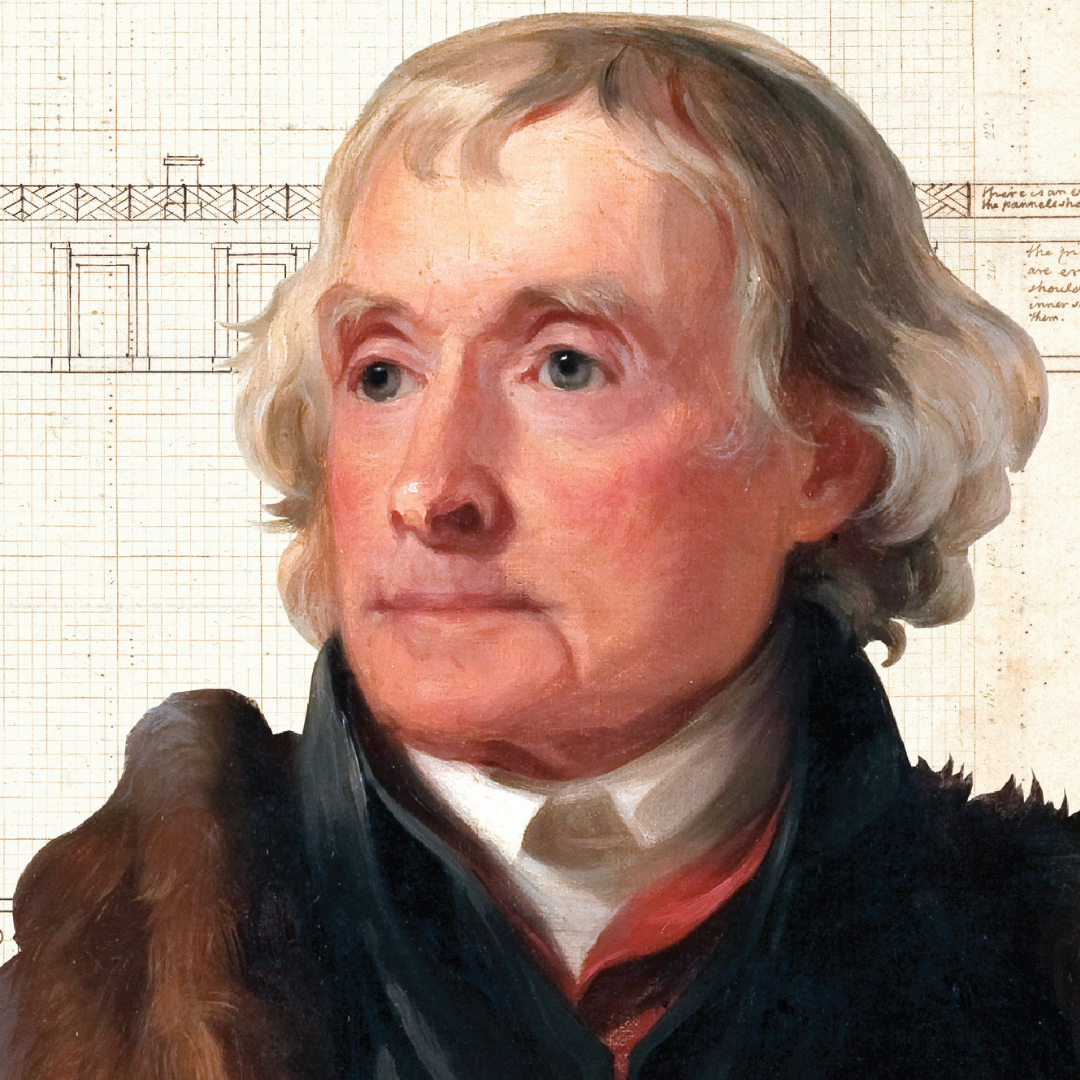
- This event has passed.
Thomas Jefferson’s Incredible Post-Presidency Legacy, The University of Virginia – Discussed by Andrew O’Shaugnessy
March 29, 2022 @ 6:00 pm - 7:00 pm

CLS is thrilled to host Andrew O’Shaughnessy for a lecture on his newest book. The Illimitable Freedom of the Human Mind: Thomas Jefferson’s Idea of a University covers the birth and life span of the University of Virginia, Jefferson’s incredible post-presidency legacy. Tickets for this event are $10 for CLS members and $15 for CLS Guests.
All too often treated as an epilogue in the life of Thomas Jefferson, this book makes the case that that the creation of the university is deserving of his own estimate as one of the three greatest achievements and that it had an important but unappreciated influence upon higher education in America. It reveals his talents as a lawyer who drafted the legislation for the assembly; as a surveyor who personally mapped the grounds; as a politician who masterminded the strategy to win approval in the assembly and to deflect intense opposition; as an architect who designed the layout, chose the building materials, and corresponded with the craftsman; and as an intellectual who developed an innovative curriculum, suggested the books for the library and the criteria for selecting the faculty. Jefferson was concerned with what remains a perennial issue which is the importance of education in the success of the republican democratic experiment.
This event is in-person and ticketed. To purchase tickets, click here.
To purchase your copy of The Illimitable Freedom of the Human Mind from Buxton Books, click here.
About the Author:
Andrew O’Shaughnessy is the Vice President of Monticello, the Saunders Director of the Robert H. Smith International Center for Jefferson Studies at the Thomas Jefferson Foundation and Professor of History at the University of Virginia. His most recent book is the Illimitable Freedom of the Human Mind: Thomas Jefferson’s Idea of a University (Charlottesville: University of Virginia Press, 2021). He has previously published The Men Who Lost America. British Leadership, the American Revolution and the Fate of the Empire (New Haven: Yale University Press, 2013), which received eight national awards including the New York Historical Society American History Book Prize, the George Washington Book Prize and The Society of Military History Book Prize. He is also the author of An Empire Divided: The American Revolution and the British Caribbean (Philadelphia: University of Pennsylvania Press, 2000) which was the alternate designate selection of the History Book Club. A Fellow of the Royal Historical Society, he is an editor of the Jeffersonian America series published by the University of Virginia Press.
About the Book:
Already renowned as a statesman, Thomas Jefferson in his retirement from government turned his attention to the founding of an institution of higher learning. Never merely a patron, the former president oversaw every aspect of the creation of what would become the University of Virginia. Along with the Declaration of Independence and the Virginia Statute for Religious Freedom, he regarded it as one of the three greatest achievements in his life. Nonetheless, historians often treat this period as an epilogue to Jefferson’s career.
In The Illimitable Freedom of the Human Mind, Andrew O’Shaughnessy offers a twin biography of Jefferson in retirement and of the University of Virginia in its earliest years. He reveals how Jefferson’s vision anticipated the modern university and profoundly influenced the development of American higher education. The University of Virginia was the most visible apex of what was a much broader educational vision that distinguishes Jefferson as one of the earliest advocates of a public education system.
Just as Jefferson’s proclamation that “all men are created equal” was tainted by the ongoing institution of slavery, however, so was his university. O’Shaughnessy addresses this tragic conflict in Jefferson’s conception of the university and society, showing how Jefferson’s loftier aspirations for the university were not fully realized. Nevertheless, his remarkable vision in founding the university remains vital to any consideration of the role of education in the success of the democratic experiment.
